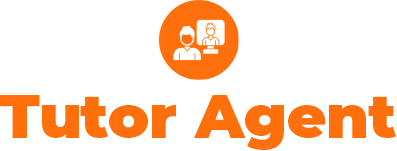Tutoring programs play a crucial role in supporting students’ academic growth and enhancing their overall achievement in schools. These programs provide targeted and personalized instruction to students, addressing their individual needs and helping them overcome challenges. In this post, we will delve into the impactful role of tutoring programs on student achievement in schools and explore the benefits they offer.
- Targeted Support:
Tutoring programs offer individualized attention to students by focusing on their specific learning needs and areas of improvement. Whether it’s struggling with a particular subject or needing extra guidance on advanced topics, tutors provide personalized instruction to bridge these gaps. This targeted support ensures that students receive the necessary guidance and reinforcement to succeed academically.
- Increased Confidence:
One of the key benefits of tutoring programs is that they boost students’ confidence and self-esteem. Working closely with a tutor who provides continuous encouragement and reinforcement allows students to build a positive relationship with learning. As students see progress and improvement, their confidence grows, leading to a more positive attitude towards their academic abilities and a greater belief in their potential to succeed.
- Individualized Pace:
In a classroom setting, it can be challenging for teachers to cater to the individual learning pace of every student. Tutoring programs address this issue by adapting to each student’s pace of learning. Tutors have the flexibility to adjust the curriculum and teaching methods to accommodate the unique needs and learning styles of individual students. This personalized approach allows students to grasp concepts at their own pace, avoiding gaps in their understanding.
- Reinforcement and Consolidation:
Tutoring programs provide valuable reinforcement and consolidation of classroom learning. Tutors use various strategies, such as practice exercises, additional resources, and revision techniques, to strengthen students’ grasp of the material covered in class. This extra practice helps students solidify their understanding, reinforce key concepts, and build a strong foundation for future learning.
- Individual Attention:
In a classroom with a significant number of students, it can be challenging for teachers to give individual attention to each student. Tutoring programs offer the advantage of one-on-one instruction, allowing tutors to cater specifically to a student’s needs. This personalized attention enables tutors to identify and address areas where students may be struggling, providing immediate feedback and guidance. Students benefit from the focused attention and are more likely to ask questions and seek clarification, leading to deeper understanding.
- Improved Study Habits and Skills:
Tutoring programs support students in developing effective study habits and essential learning skills. Tutors can teach students valuable techniques like time management, organization, note-taking, and critical thinking. By guiding students in these areas, tutors equip them with the tools needed to become independent learners who can apply these skills to other subjects and future educational endeavors.
Conclusion:
Tutoring programs have a significant impact on student achievement in schools by providing targeted support, increasing confidence, allowing for personalized learning paces, providing reinforcement, offering individual attention, and fostering improved study habits and skills. These programs complement classroom instruction and address the specific needs of students, ensuring they reach their full potential academically. With the support of tutoring programs, students can overcome challenges, build a strong foundation in their studies, and achieve academic success.



